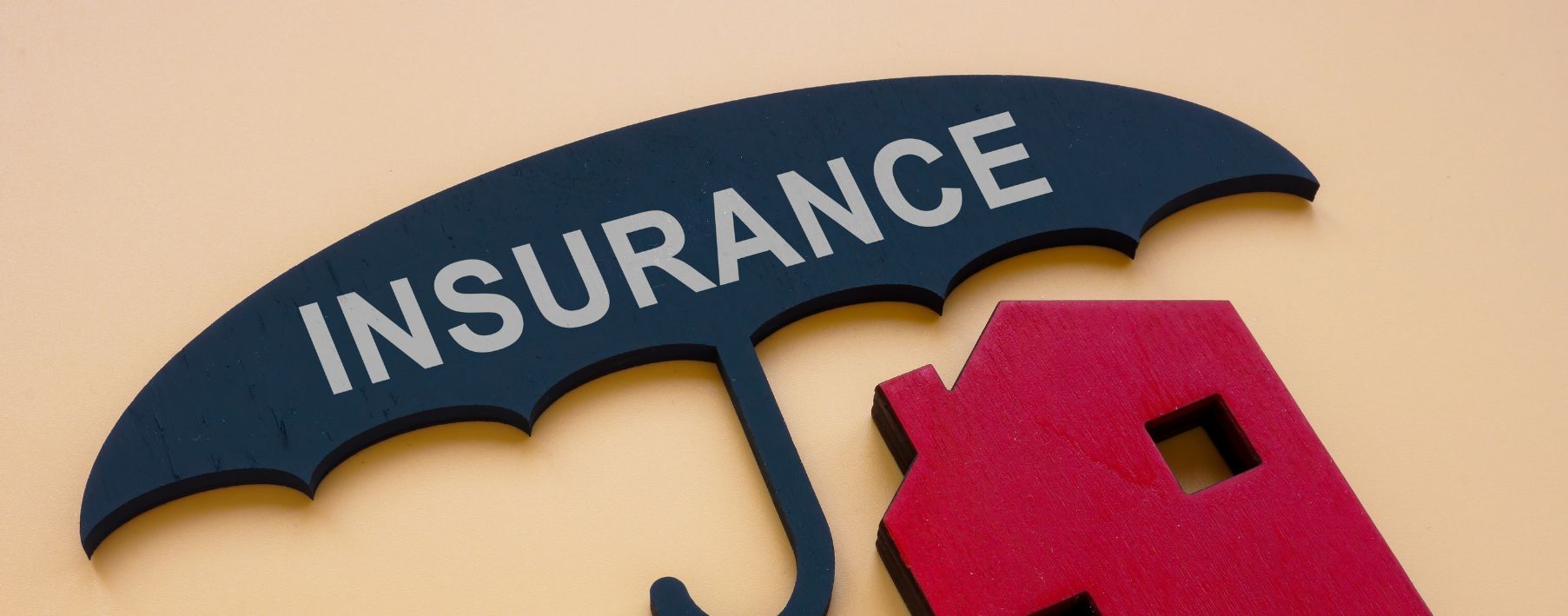Umbrella Insurance Uncovered

Umbrella insurance — it's an extra layer of liability protection that can help shield your assets and income when the unthinkable happens. Whether it's a serious car accident, an injury on your property, or a costly lawsuit, having the right umbrella policy in place can provide invaluable financial security.
But what exactly is this supplemental coverage, and why do so many experts recommend adding it to your insurance portfolio? Read on for more information about umbrella coverage and if it may be right for you.
Key takeaways
-
An umbrella policy provides affordable, supplemental liability coverage beyond the limits of your home, auto, watercraft and other standard insurance policies.
-
It protects your assets against costly lawsuits or claims resulting from injuries, property damage, libel, slander, and other liabilities for which you're held legally responsible.
-
Umbrella insurance is recommended for anyone with a large net worth or increased liability risks, including owning a pool, having teen kids, and more.
-
A typical $1 million personal umbrella liability policy costs $150 to $300 annually, a relatively low price for the high coverage limits and level of asset protection it provides.
How does umbrella insurance work?
An umbrella insurance policy is a type of supplemental liability coverage that kicks in when you face a claim that exceeds the liability limits on your standard home, auto or other insurance policies. These claims could be for incidents like bodily injuries, property damage, and personal injury claims such as libel or slander. It’s also known as excess liability coverage.
The purpose of an umbrella policy is to protect your assets from costly lawsuits and judgments that could exceed the liability coverage maximums of your underlying policies. Think of it as an extra layer of protection against getting sued for injuries, property damage, libel, slander and other incidents.
Homeowners insurance policies typically require at least $250,000 to $300,000 in liability insurance before you can qualify for umbrella coverage. An umbrella liability insurance policy increases those limits significantly, often providing $1 million to $10 million in additional coverage.
This coverage kicks in when you face a lawsuit or claim that exceeds the liability coverage of your primary homeowners policy and other insurance. It usually applies to all household members, but it's essential to check your specific policy for its umbrella insurance definition of a "household member."
Let's look at an example to understand how umbrella insurance works.
Imagine a guest slips and falls down your stairs, sustaining serious injuries due to a broken handrail. They sue you for $500,000 to cover medical bills, lost income, pain and suffering, and other damages.
If your homeowners insurance only provides $300,000 in liability coverage, you'd be responsible for paying the remaining $200,000. This could drain your savings accounts and deplete your assets.
However, a personal umbrella policy would cover that excess of $200,000, keeping your savings and assets intact.
Do I need an umbrella insurance policy?
It depends on your situation and risk tolerance. If you have substantial assets or engage in activities that increase your liability exposure (e.g., owning rental properties, having a new teenage driver, owning an aggressive dog breed, having a pool), an umbrella policy can provide invaluable peace of mind.
Is umbrella insurance the same as excess liability insurance?
Umbrella insurance and excess liability insurance both extend the limits of your standard insurance policies, but there are some key differences between the two.
Umbrella insurance is a type of personal liability insurance that can be applied to multiple policies. It provides additional liability coverage for various scenarios — from home to auto incidents.
On the other hand, excess liability coverage provides a dollar amount extension to only one underlying policy. For example, if you added excess liability to your home insurance, you could only apply it to home-related scenarios.
What does an umbrella insurance policy cover?
An umbrella insurance policy provides additional liability coverage beyond your existing insurance policies. It typically covers:
-
Bodily injury if you're found liable for someone else's injuries.
-
Property damage if you're held responsible for damage to another person's property.
-
Personal liability protection against libel, slander, false arrest, and other personal liability claims.
-
Legal fees and defense costs associated with defending yourself in a lawsuit.
-
Landlord liability if you rent properties to tenants.
Examples of situations covered by umbrella insurance
While you may think, "I'll never need umbrella liability insurance," liability risks and lawsuits can arise more frequently than expected from everyday activities. An umbrella policy can offer invaluable protection in various personal liability scenarios.
Some common examples of where personal umbrella policies would apply:
-
Your dog bites a neighborhood child, and their family sues you for the injury and medical costs, exceeding your homeowners liability limit.
-
A guest slips and falls at your home, requiring hospitalization. In addition to the medical bills, they sue for pain and suffering, resulting in damages beyond your standard home insurance.
-
You're found legally responsible for a serious multi-car accident, with the other parties' injury claims totaling more than your auto liability coverage maximums.
-
Your child unintentionally starts a fire at their apartment building, leading to lawsuits from injured tenants that aren't fully covered by your child's renter's insurance limits.
-
A house fire starts in your rental property because of accidental negligence, and the tenant sues you for damages, even though you have equipment breakdown coverage.
See how common these incidents can be? And that’s just the tip of the iceberg. Luckily, umbrella insurance kicks in when your underlying policy limits are exhausted and can help protect your assets and future income from costly liability claims like these.
What is not covered by an umbrella insurance policy?
To put it simply, umbrella liability insurance won’t cover your own costs. It’s for third-party claims only. So, if you experience damage or loss to your own property, it won’t apply.
Umbrella policy insurance is meant to help you if you’re sued for damages and found at fault by someone else.
So, with that in mind, what’s not covered by umbrella insurance? Some key exclusions typically include:
-
Intentional criminal acts or intentional harm you cause.
-
Business-related losses, liabilities or malpractice claims (even for home-based businesses).
-
Contractual liabilities arising from written or oral contracts.
-
Liability related to war, terrorism or other armed conflicts.
-
Damage to your own personal property, belongings or place of residence.
Umbrella insurance also won't help cover things like dwellings, structures, or weather-related accidents to your property. So if a windstorm damages your property, someone burglarizes your home or a wildfire burns through your neighborhood, that will be a job for other types of coverage, such as windstorm insurance and theft insurance.
Do you need umbrella insurance?
Umbrella policy insurance is not legally required, but if there's an increased chance you could be sued for damages exceeding the liability limits of your standard insurance policies, you might want it. It's natural to think, "That won't happen to me," but the reality is that accidents can happen to anyone, and lawsuits can be unpredictable.
So, who needs umbrella insurance coverage? Here are some situations where it may be wise:
-
You are a landlord insurance or rental property owner - An umbrella policy safeguards your assets if a tenant or visitor suffers an injury on your property and sues.
-
You have valuable assets, such as cars, houses, boats, investment accounts, savings accounts, or other belongings. You don't want to lose these items in the event you're sued.
-
You have potential injury risks like a swimming pool, trampoline or aggressive dog breed that increase your personal liability exposure.
-
You frequently host events/parties or do activities where guests could get injured on your property.
-
You employ domestic staff like nannies or housekeepers who could file an injury claim against you as their employer.
If you have a higher risk of being sued, contact Hippo to better understand how umbrella insurance could benefit you. Umbrella policies vary by insurance company; some have inclusions or exclusions that could impact your coverage amounts. Discuss your options with a qualified insurance provider to ensure you have the necessary coverage.
How much does umbrella insurance cost?
A $1 million umbrella insurance policy might cost around $150 to $300 annually for most individuals, according to the Insurance Information Institute (III). As you increase your limits, the incremental cost increases but remains relatively inexpensive.
For instance, raising your umbrella coverage to $2 million may add $75 to your premium beyond the initial $150 to $300. Then, you might pay $50 for each million after that.
To qualify for coverage, you’ll also have to meet specific requirements on your standard policy, as this policy must run out before you can begin using umbrella coverage. On average, the III estimates you’ll need $300,000 in coverage on your homeowners insurance personal liability policy.
The exact cost of an umbrella insurance policy will vary based on where you live, what your insurance provider can offer and how much of a risk you are to insure.
Still have questions?
Find out more about umbrella insurance with the help of some of the following commonly asked questions.
Is an umbrella insurance policy worth it?
If home insurance teaches us anything, it’s to expect the unexpected and prepare for it. Umbrella insurance is another way to do just that. Though getting sued isn’t typically on anyone’s to-do list, an umbrella policy can help shield you from the storm. And if you’re faced with a costly lawsuit that exceeds your regular policy limits, an umbrella insurance’s low cost can make it worth the investment to protect your finances and future.
How much umbrella insurance do you need?
Your total net worth and potential liability risks greatly determine how much umbrella insurance you need. A good rule of thumb is to get umbrella policy insurance with limits equal to your total assets — if you're worth $2 million, get $2 million in umbrella coverage. This ensures you have enough protection if sued for an amount exceeding your standard home and auto policy liability limits.
Who needs umbrella insurance?
Umbrella insurance policies are recommended for anyone with major assets, elevated liability risks, or increased chances of being sued for damages. This includes high net-worth individuals, landlords, those with hazardous assets like pools, boats, four-wheelers, or dirt bikes, people who frequently host events on their property, dog owners, and people with kids.
What is the difference between umbrella insurance and personal liability insurance?
Your homeowners insurance includes personal liability coverage — if you're legally responsible for injuries to others or damage to their property, up to the policy's liability limits (typically $300,000). Umbrella liability insurance sometimes extends this limit to $1 million or even $10 million. So, if you get sued for an amount higher than your base liability maximums, your umbrella policy kicks in to cover the excess costs.
What will a personal umbrella policy cover?
A personal umbrella policy can cover bodily injury, property damage, certain lawsuits, and personal liability situations where you'd be legally responsible — such as a serious car accident, injuries on your property, accidental damage made by your kids, libel or slander suits, and more.
What is a premises-only umbrella policy?
Premises-only umbrella policies provide extra liability coverage for accidents that happen only on your property, such as in your home or on your land. They don't cover incidents that occur outside your property, like car accidents or injuries that happen elsewhere.



